How does coffee processing affect coffee flavor? What are the advantages and disadvantages of adding fruit fermented coffee
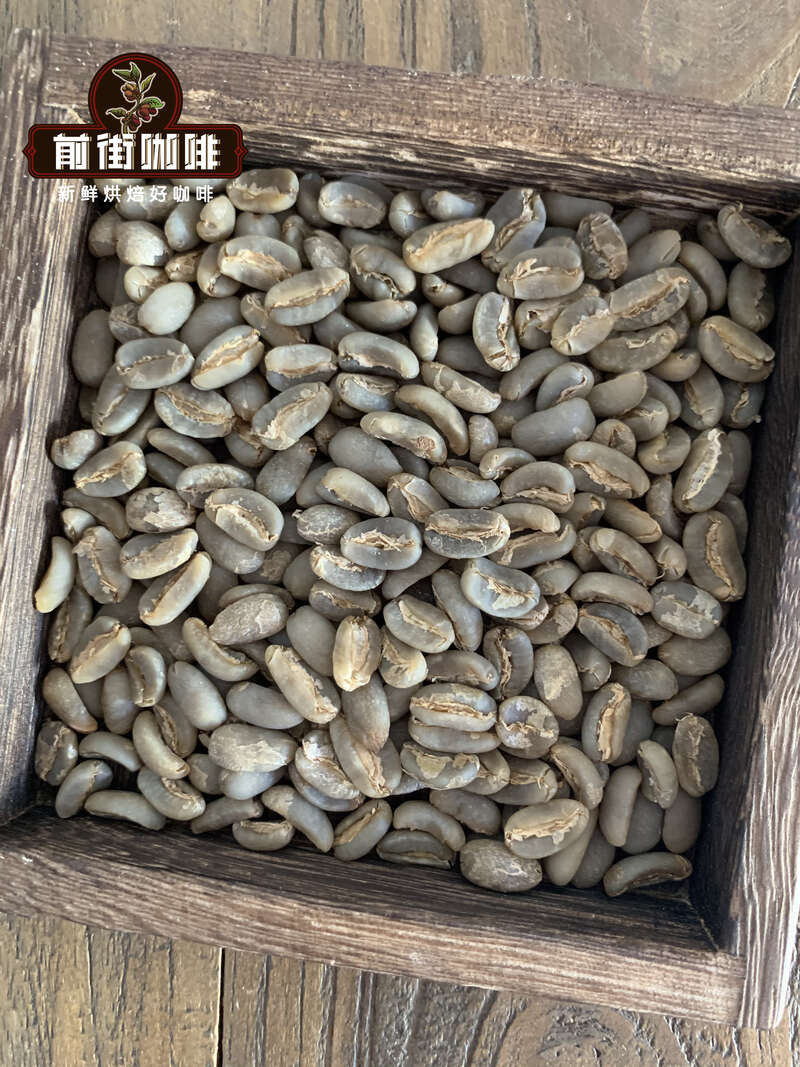
In today's specialty coffee market, buyers are looking for coffee with exotic flavor and high cupping score. This encourages coffee producers to innovate in production and processing where possible.
One such example is that producers conduct processing experiments by fermenting coffee cherries with other fruits. To learn more about how they did this and how it worked, I interviewed producers and scientists from Brazil and Colombia. That's what they have to say.
What is fermentation?
Coffee cherries naturally begin to ferment after picking (sometimes if the humidity is high enough). When yeast, bacteria and other microbes break down sugar molecules in the mucus of cherries. This process produces acids and alcohols, which in turn affect the flavor of coffee in the product.
Fermentation is a sensitive process that can be accelerated or slowed down by environmental changes, including the presence of temperature, humidity and oxygen. Poor fermentation can lead to mildew or bad taste of coffee, so it is important to control the process.
In response to the growing consumer demand for unique, complex and high-quality coffee, many specialty coffee producers are experimenting with new and unusual fermentation methods (such as carbon impregnation).
Juliano Tarabal is an agronomist and director of the Federa ã odos Cafeicultores do Cerrado Mineiro of the Association of Coffee producers in the Brazilian state of Minas Gerais. "the latest technology and new demand for microbatches in the specialty coffee market have enabled producers to aim to stand out in post-harvest processing," he said. "
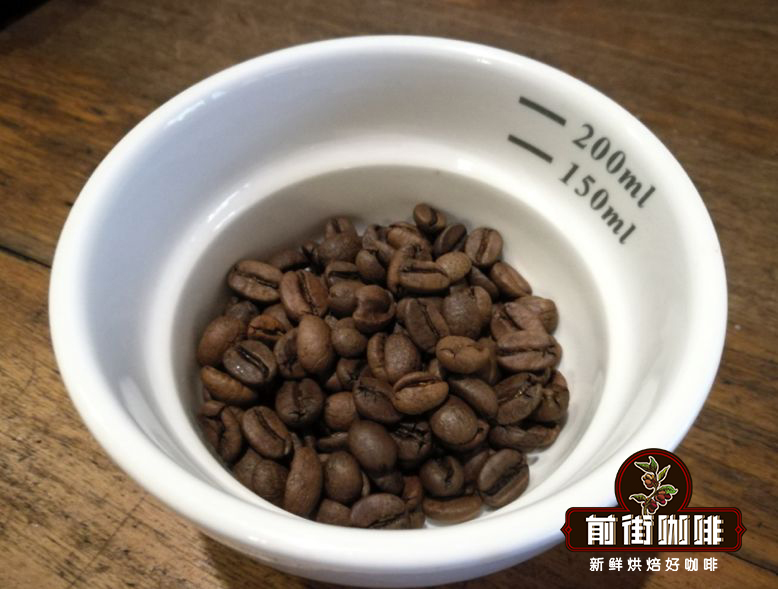
Over the past decade, fermentation has become a specific area of concern for specialty coffee producers, he added. Over the past decade, coffee farmers have begun to invest more and more in post-harvest strategies.
"before that, they only focused on high production because of the small demand for special profiles. At that time, we no longer need the differentiation as we do today.
"We used to dry coffee in a sunny environment or in a dryer as fast as possible, and we didn't explore the fermentation process. We are trying to reduce humidity faster and stop exploring the microbial richness in coffee mucus. "
Giuliano said that controlled fermentation was first prevalent in the Serrado Minero region of Brazil, when producers saw other producing countries (such as Guatemala and Colombia) using it to control the growth of microbes in rainy and humid conditions.
Once farmers have experimented with it, they realize that it has the potential to produce more complex and dynamic coffee.
Felipe Sardi is the co-founder and general manager of Columbia's La Palma&El Tucan specialty coffee. He says there has been innovation in the field of coffee fermentation since around 2012, and interest in the field is growing.
"I would like to say that this practice has become more and more common in Colombia over the past five years. Whether abroad or abroad, we are interested in this topic. "
Add fruit to ferment
Recent experiments have led some producers to add fruit when fermenting coffee.
One such example is the anaerobic fermentation of cherries with a predetermined percentage of whole fruit or extract (usually Sugar cane juice or citrus fruit) in a sealed airtight tank. The mixture is then fermented in a tank for a predetermined time. During this period, the temperature of the storage tank is strictly adjusted.
Bruno Souza is a producer of FazendaEsperan ç an in the Brazilian state of Minas Gerais. He told me that he had been using citrus fruits in coffee fermentation since 2017.
Bruno first began to experiment with oranges. He explained that he put the fruit in a bag, mashed some of it, and then added natural Icatu coffee with a fruit / coffee ratio of 1:5 to the tank. 72 hours later, he continued to deal with it as usual.
"this cup of coffee gave me the best cupping score on the farm, out of 91 out of 3.5 bags," Bruno said. " "I took part in the excellent Cup in 2018 and I got a cupping score of 87.
"but the question is: we are not sure whether the result comes from the interference of [oranges] or all from the coffee beans themselves."
Bruno has now processed two batches of coffee with or without oranges to assess its effectiveness. He's still trying lemons. He points out that he doesn't always rely on fermentation to improve the quality of coffee, and he says there are many other variables to consider.
"it seems easier to get [high quality] coffee from fermentation, but it's not always right. We must try to use the unique coffee that pure beans can provide to make unique coffee, regardless of fermentation. "
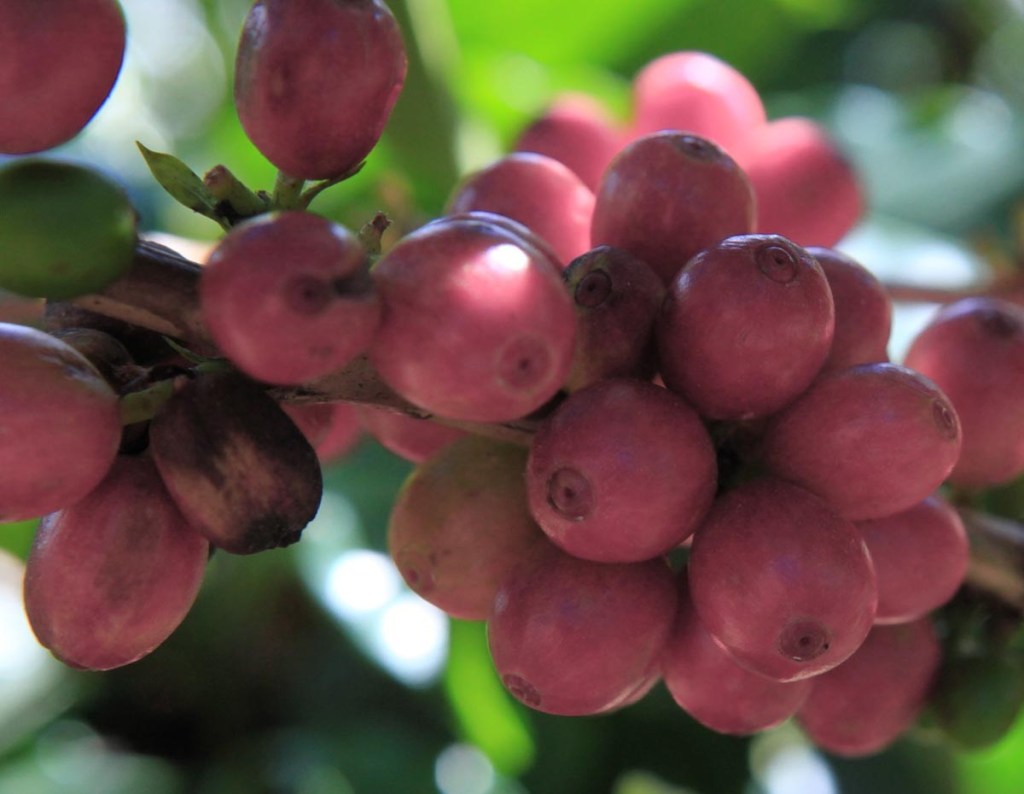
Is fruit fermentation really effective?
In coffee processing, controlling fermentation is still a relatively new and still under research part. Scientists are just beginning to explore how it affects the final cup shape of coffee. Many people believe that more research on fruit fermentation is generally needed before even starting to explore fruit fermentation.
Lucas Luzada (Lucas Louzada) is a Q-level student and professor at the Federal College of Immigration University (Venda Nova do Imigrante) in the state of Espiritu Santo (Ivenito), Brazil. "all of this is very interesting," he said. Everyone wants to find a fast, magical solution, but the road is longer than that. "
"I believe that even 30 or 40 years from now, we will not get all the answers. From a scientific point of view, we know nothing about coffee fermentation. We are still learning. "
Lucas said that although it has been determined that including fruit in fermentation affects wort (the liquid produced during fermentation), further research is needed to determine how it affects the flavor of coffee. "in general, we are closer to tacit knowledge than scientific knowledge," he said. "
Felipe did not add fruit to his coffee processing because he thought the fermentation process was very complex. "part of the reason is that we want to side with a purer approach. We should respect the sugar content of the coffee fruit itself and the natural microbial colonies that depend on it.
"this is also because we think that coffee fermentation is a very complex process. Therefore, before we consider adding other variables to deal with, we want to try to understand it. "
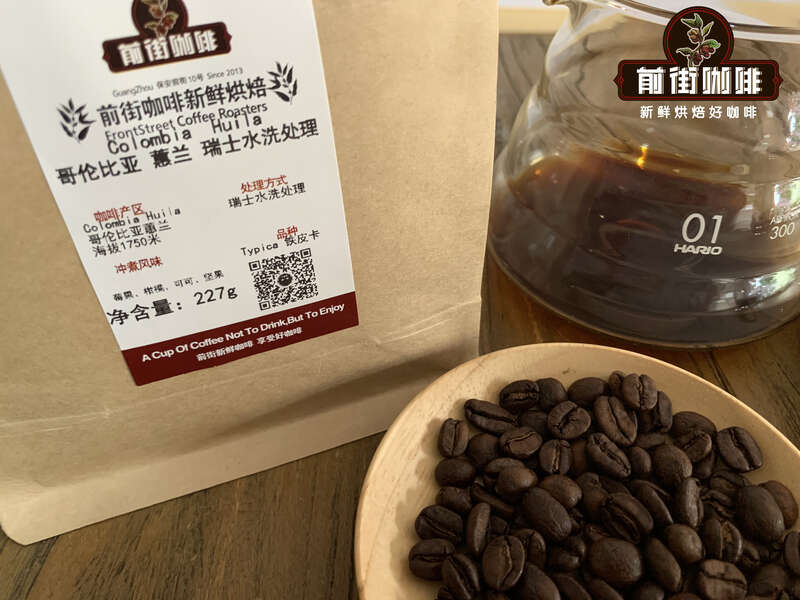
Suggestions from producers who want to try fruit fermentation
Before considering experimental fermentation methods (such as fermenting coffee with fruit), producers should consider whether there is a market for these more unique coffees.
"some markets will like this coffee, others will hate it. Farmers must ask themselves who is going to buy and drink coffee. " Lucas said.
Producers should keep in mind that coffee processed in this way may not be suitable for daily consumption. Bruno pointed out: "you can't drink exotic coffee every day."... They are like rare dessert wine. "
In addition, manufacturers should note that adding fruit to fermentation increases production costs and does not guarantee positive results. "if we tell the producer to buy fruit, he will increase costs in production and plan when we don't know what the outcome will be," Lucas said. "
He also pointed out that when there is little data on how to affect the quality of coffee, experimental processing methods such as fruit fermentation may lead to changes in producers' expectations of the final product.
Future research may also make current practices obsolete and make producers feel that they are wasting money. Lucas explains that in the past, manufacturers used sugar cane syrup to help break down the mucus in coffee cherries. However, current studies have shown that better results can be obtained by using glucose solution.
Studies may emerge and show that fermenting coffee with fruit has no obvious benefits-producers need to be aware of this.
Fruit fermentation also requires producers to carefully control all possible variables, which can be labor-intensive and costly. Microbes and sugar molecules must interact in a very specific way to get any positive results. If external variables (such as temperature and oxygen levels) are not monitored, very expensive, bad-tasting coffee may be produced.
In general, manufacturers should exercise caution and provide as much professional support as possible. "the best way is for a professional researcher to help producers experiment in a controlled and carefully reported manner until we have a stable treatment in this way," Lucas said. "
Obviously, it is necessary to do more research on controlled fermentation and its effect on coffee flavor. However, this does not mean that producers should not try to innovate in search of better taste and higher quality coffee.
Well-documented experiments and continuous research will enable manufacturers to fine-tune their processes and produce replicable results. By being meticulous and cautious, producers will be able to experiment and innovate without having to worry about their financial safety or the flavor of the coffee.
Important Notice :
前街咖啡 FrontStreet Coffee has moved to new addredd:
FrontStreet Coffee Address: 315,Donghua East Road,GuangZhou
Tel:020 38364473
- Prev

Nicaraguan Fine Coffee Professor of Coffee beans in Tianji Manor & Gift Coffee brewing Flavor
Professional coffee knowledge exchange more coffee bean information please follow the coffee workshop (Wechat official account cafe_style) Nicaragua in previous years due to frequent civil war, the coffee industry has not developed, so Nicaraguan coffee has been unknown. In recent years, the economy has stopped, and the coffee industry has also developed. Nicaraguan coffee has a charming
- Next
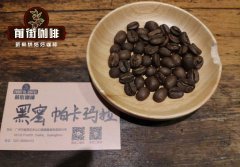
El Salvador boutique coffee brewed with black honey to treat Pacamara coffee beans with special taste and flavor
Professional coffee knowledge exchange more coffee bean information please pay attention to the coffee workshop (Wechat official account cafe_style) Salvadoran coffee may seem relatively minority in boutique coffee, what many people do not know is that Salvadoran coffee in its heyday, was once the world's fourth coffee producing country, due to decades of civil war, dragged down the entire coffee industry, the local farmers Ren Tian abandoned
Related
- Beginners will see the "Coffee pull flower" guide!
- What is the difference between ice blog purified milk and ordinary milk coffee?
- Why is the Philippines the largest producer of crops in Liberia?
- For coffee extraction, should the fine powder be retained?
- How does extracted espresso fill pressed powder? How much strength does it take to press the powder?
- How to make jasmine cold extract coffee? Is the jasmine + latte good?
- Will this little toy really make the coffee taste better? How does Lily Drip affect coffee extraction?
- Will the action of slapping the filter cup also affect coffee extraction?
- What's the difference between powder-to-water ratio and powder-to-liquid ratio?
- What is the Ethiopian local species? What does it have to do with Heirloom native species?

